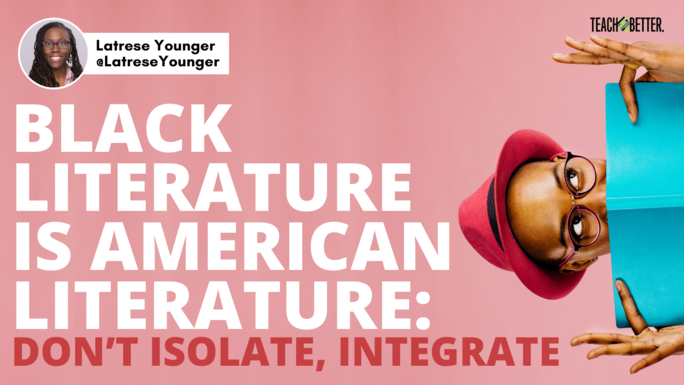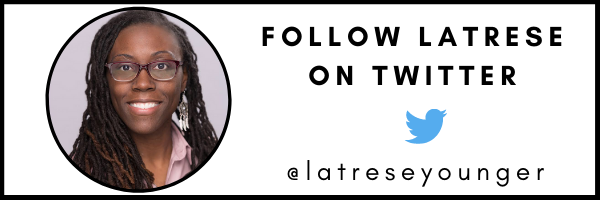TL;DR:
- Begin the year by designing multi-ethnic units and teach them year round, not only during Black History month.
- Build a more inclusive and diverse literature classroom to develop a greater appreciation for it.
- Take time to locate literature that reveals the joy and beauty of the Black experience in this country and abroad and not only share stories about Black people in pain, trial, or enslavement.
When To Teach Black Literature
If the first time your students hear the names Bigger Thomas, Castle “Ghost” Cranshaw, Janie Crawford, Okonkwo, or Xiomara Batista is during Black History Month, you’re not doing it right. Black History Month isn’t the time to begin introducing your students to Black and Afro-Latina characters. Instead, it is a time to celebrate all that you’ve previously taught students about these characters. It is a time to reflect on Black literature in a way that feels inclusive and meaningful, rather than isolated.
If the first time your students hear the names Bigger Thomas, Castle “Ghost” Cranshaw, Janie Crawford, Okonkwo, or Xiomara Batista is during Black History Month, you’re not doing it right. Click To TweetStudents can tell when they are approaching a “Black History Literature Unit.” There is an all-of-a-sudden feel to it. Suddenly, they find themselves totally immersed in all things Black—Black people, culture, food, music, style, and quotes. This isn’t the best way to bring about a true admiration for all of the wonderful, literary works that Black Americans have contributed to this country.
What’s the Alternative?
During Black History month, you could, instead, offer up a time to reflect on what you’ve already taught students regarding Black characters and literature. You could also do some paired multi-ethnic passages to offer new insights and help students gain perspective. Students of all walks of life will appreciate not feeling inundated by Black literature during the month of February.
When they are taught Black literature throughout the year, students will develop a better appreciation for Black literature. All students should know about American heroes like Frederick Douglas, Phillis Wheatley, Alice Walker, James Baldwin, Zora Neal Hurston, and Langston Hughes. Remember to include works by contemporary writers like Jason Reynolds, Angie Thomas, Kwame Alexander, Amanda Gorman, and Jewell Parker Rhodes, who have much to offer to young people about the present state of race relations in this country.
All Stories Bring Us Together
Jordan (1988) asserts “literature can develop and expand multicultural understandings by depicting experiences that are common to all and by relating the things that make each cultural group special.” An integrated Black literature study can help all students gain tolerance, empathy, and understanding.
Black literature helps Black students process and understand the world around them from an inclusive perspective. Click To TweetRemember not to only share stories about Black people in pain, trial, or enslavement; take time to locate literature that reveals the joy and beauty of the Black experience in this country and abroad. Seek to celebrate Black literature year-round for a more inclusive and diverse literature classroom. Don’t worry about bumps along the way as you strive to make a change in your classroom. Mistakes are inevitable when you are destined on enhancing intentionality and purpose in instruction. Elijah Carbajal says that we should “Try Something Better Today, Tomorrow, and Every Day.”
[scroll down to keep reading]
About Latrese Younger
Latrese D Younger is an instructional lead learner in Virginia. Her passion is English language arts and she believes that she will always be a teacher at heart. Latrese has a servant mindset, spirit, and attitude that she believes helps keep her grounded. She resides with her son, husband, and English bulldog. In her spare time, she loves writing, reading, and social media curating.



